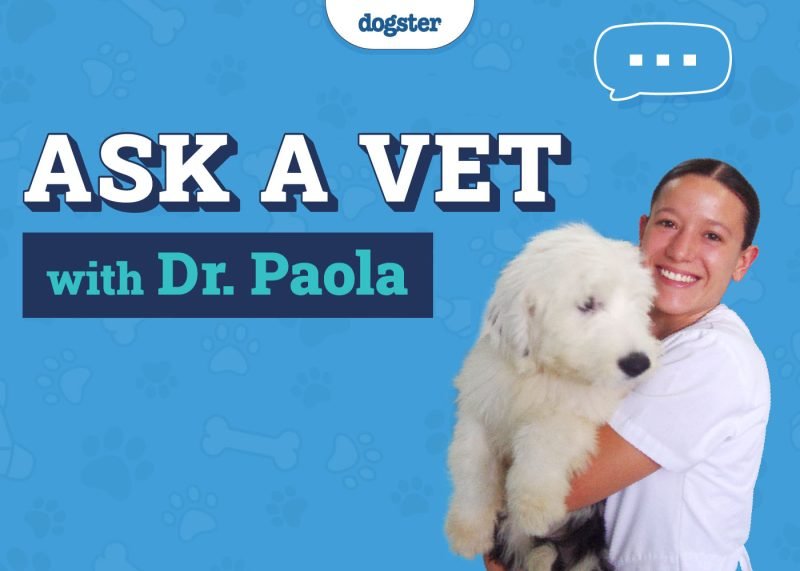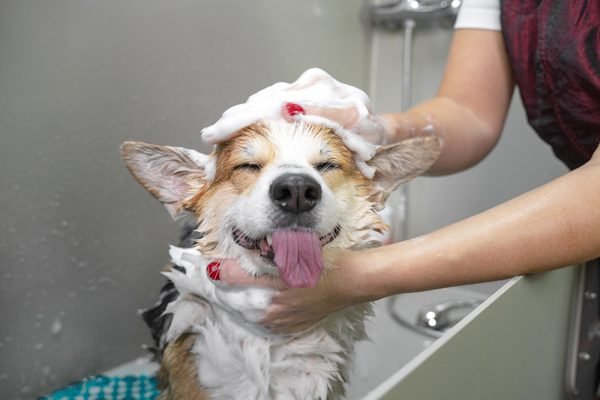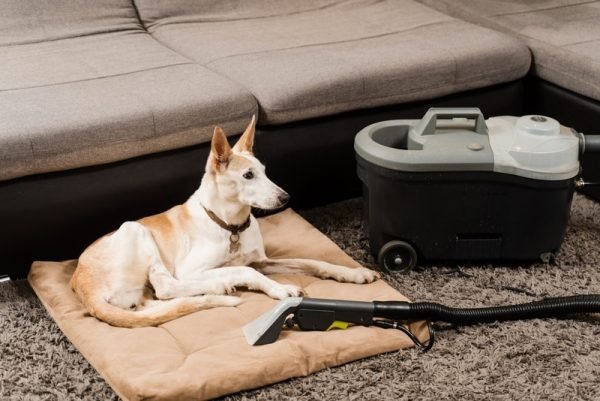

The post Ask Dr. Paola: Monday June 16, 2025 by Dr. Paola Cuevas MVZ (Vet) appeared first on Dogster. Copying over entire articles infringes on copyright laws. You may not be aware of it, but all of these articles were assigned, contracted and paid for, so they aren’t considered public domain. However, we appreciate that you like the article and would love it if you continued sharing just the first paragraph of an article, then linking out to the rest of the piece on Dogster.com.
Welcome to our “Ask Dr. Paola” series, where every Monday we bring expert advice straight from Dr. Paola Cuevas (MVZ) to help our readers better understand their dog’s health and well-being.
Whether you’re a new pet parent or a seasoned dog lover, Dr. Paola is here to provide answers to your most pressing questions. From nutrition tips and preventive care to troubleshooting common behavioral issues, Dr. Paola is ready to offer insights that will keep your furry friend happy and healthy. Stay tuned for expert guidance on a range of topics that matter most to you and your dog, so you can make informed decisions and provide the best possible care for your canine companion. Have a question? Send it in here!

Help! My Dog Hasn’t Eaten for a Week!
“Dear Dr. Paola,
My dog Missy hasn’t eaten in a week! I’ve tried everything, including canned food and milk. Unfortunately, she seems very weak. What should I do? Do you make house calls? ” – Cynthia
Dear Cynthia,
I’m truly sorry to hear that Missy is feeling so unwell. If she hasn’t eaten for a week and is now very weak, this is a serious medical emergency. Dogs can develop life-threatening complications, such as hypoglycemia or liver issues, when they go without food for several days, especially if they’re already small, senior, or have underlying health conditions. Her refusal to eat and growing weakness suggest that her body is struggling to keep up, and she urgently needs hands-on veterinary care.
While I don’t make house calls, I strongly recommend that you contact a local veterinary clinic or emergency vet hospital immediately. If transportation is a challenge, many areas have mobile veterinarians or pet transport services that can help. Missy needs an examination, bloodwork, and likely supportive treatments such as fluids or even assisted feeding. Time is of the essence in this situation, and the sooner she receives care, the better her chance of recovery.
Sincerely,
– Dr. Paola
If you want real time answers to your questions, you can talk to one of our veterinarians online. Click on the image or button below:


Help! My Dogs Spleen Has Recently Been Removed!
“Is Astragalus a good supplement for my dog with a recently removed spleen? I’m looking for holistic options to boost the immune system that don’t impact blood clotting like black currant seed oil does. “ – Sadie
Dear Sadie,
Thank you for your thoughtful question. It’s clear that you’re being very mindful in supporting your dog’s recovery and long-term health, especially after something as significant as a splenectomy. When the spleen is removed, the body loses part of its immune surveillance system, so bolstering immune function gently and safely becomes a reasonable goal.
Astragalus (Astragalus membranaceus) is an herb traditionally used in Chinese medicine to support immune function. In holistic veterinary circles, it’s sometimes used to promote vitality and improve the immune response, especially in chronic or immune-compromised states. However, its use in dogs is still considered complementary and not fully backed by large-scale clinical trials. That said, anecdotal reports and smaller studies do suggest potential benefits, and it is generally well tolerated in healthy dogs when used correctly. Importantly, astragalus is not known to interfere with blood clotting, making it a safer option compared to supplements like black currant seed oil or fish oil in pets with clotting concerns.
Still, because your dog’s condition is complex and post-surgical, I’d recommend a consult with a holistic or integrative veterinarian who can tailor a plan based on their full health picture.
Wishing your pup good health, Dr. Paola
– Dr. Paola

Help! My Dog Died After Vet Care!
“Dear Dr. Paola,
My dog Archie died after I took him to the vet. He was coughing up phlegm from his lungs for three nights. The vet disagreed with me, said he was vomiting, and treated him for that. My dog died a week later, after receiving many tests, treatments, CT scans, X-rays, and even a camera into his lungs and hospitalization. After taking him to another vet, I learned that he had atypical pneumonia. I can’t help but believe that had he been treated for the complaint I originally brought him in for, he would be here now. He was only six years old and in perfect health. Could you give me your opinion on this, please? I have videos showing Archie coughing, certainly not vomiting.” – Annette
Dear Annette,
I’m truly sorry for your loss. Losing Archie in such a distressing and seemingly preventable way is heartbreaking, and I can feel the depth of your love and the weight of your pain through your words. Your grief is valid, and your questions deserve careful, compassionate consideration.
From what you’ve shared, it sounds like you were very observant and proactive in taking Archie to the vet. Coughing, particularly with the production of phlegm from the lungs, points toward a respiratory issue rather than a gastrointestinal one. While coughing can sometimes be mistaken for retching or vomiting, videos are often very useful in clarifying these distinctions, especially in brachycephalic breeds or when signs are subtle. A misinterpretation at that early stage could, unfortunately, delay proper diagnosis and treatment. Atypical pneumonia, which can progress quickly and be difficult to detect in its early stages, requires timely, targeted therapy. If initial treatment was directed at the wrong body system, it’s possible that the window for successful intervention was narrowed.
You did everything a devoted pet parent could. You trusted your instincts, sought a second opinion, and pursued advanced diagnostics. That speaks volumes about your love and commitment to Archie. While we cannot rewrite the past, seeking answers, even now, can be an important part of the healing process. This is difficult during intense emotional moments, but it may help to reflect on the fact that even the most experienced and compassionate veterinarians can sometimes misinterpret what they see, especially if the signs are presented in a way that mimics gastrointestinal distress. Veterinary medicine, like human medicine, isn’t always clear-cut, and while that doesn’t ease your loss, it’s important to know that errors in judgment are rarely due to a lack of care, but rather to the complexity of cases and the limitations of the information available at the time. After all, we vets are also just humans, trying to do our best for the animals in our care.
If you feel that your concerns were dismissed or not fully explored when they should have been, you may want to consult with another veterinary professional. They can review the full records and offer insight specific to Archie’s timeline. You might also consider submitting the case for review to a veterinary medical board, not out of blame, but in pursuit of transparency and learning. Archie mattered deeply, and your voice matters, too. I sincerely wish you strength throughout your grief and healing. In case you haven’t read it, my dear colleague Dr. Karyn has written about her experience losing her elderly dog. You may find her insights on how to acknowledge missing Archie, live the process, and finally manage to open your heart again helpful.
Condolences, Dr. Paola
- View past week’s questions here: June 9, 2025
- See our full list of past articles here
- Click here to submit a question
The post Ask Dr. Paola: Monday June 16, 2025 by Dr. Paola Cuevas MVZ (Vet) appeared first on Dogster. Copying over entire articles infringes on copyright laws. You may not be aware of it, but all of these articles were assigned, contracted and paid for, so they aren’t considered public domain. However, we appreciate that you like the article and would love it if you continued sharing just the first paragraph of an article, then linking out to the rest of the piece on Dogster.com.






